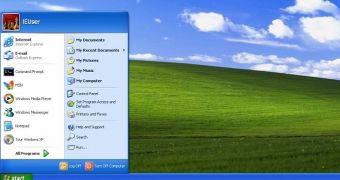Windows XP's end of support is believed to be one of the reasons why the PC market actually slowed down its decline, as more users decided to move from the unsupported operating system to a newer version and thus purchase a new computer.
Lenovo is one of the companies that are performing quite well these days and a company representative says that the migration from Windows XP to Windows 7 and Windows 8 is actually a key factor for its positive performance.
“Our performance has remained strong and we have continued to register positive growth,” Mohammed Hilili, Lenovo General Manager for the Gulf, said in a statement for Emirates 24/7. “With XP users migrating to Windows 7 and Windows 8 we have already seen a movement upwards,” he said.
Microsoft, of course, has every reason to be pleased with this, especially because the company has tried to move users off Windows XP since it officially announced end of support for the operating system launched in 2001.
Basically, Redmond warned with every single occasion that staying on Windows XP after end of support is quite a risky decision because every single vulnerability that's found in the operating system could be used by hackers to break into your computer and access personal data.
“After April 8, 2014, Microsoft will no longer provide security updates or technical support for Windows XP. Security updates patch vulnerabilities that may be exploited by malware and help keep users and their data safer. PCs running Windows XP after April 8, 2014, should not be considered to be protected, and it is important that you migrate to a current supported operating system – such as Windows 8.1 – so you can receive regular security updates to protect their computer from malicious attacks,” the company said in a statement a couple of months ago.
And still, according to the latest figures provided by market researcher Net Applications, Windows XP is still installed on 28 percent of the desktop computers across the world, despite all of Microsoft's warnings. Starting March 8, Redmond has also upgraded XP workstations to display upgrade notifications, thus trying to make everyone aware that support for this particular OS version is coming to an end.
However, most Windows XP users are choosing to switch to Windows 7, despite the company's intentions to move everyone to Windows 8.1. The reason is as simple as it could be: customers prefer an interface that's a bit more familiar, as Windows 8 is still considered a rather confusing OS because of the lack of a Start menu and the Modern UI.

 14 DAY TRIAL //
14 DAY TRIAL //